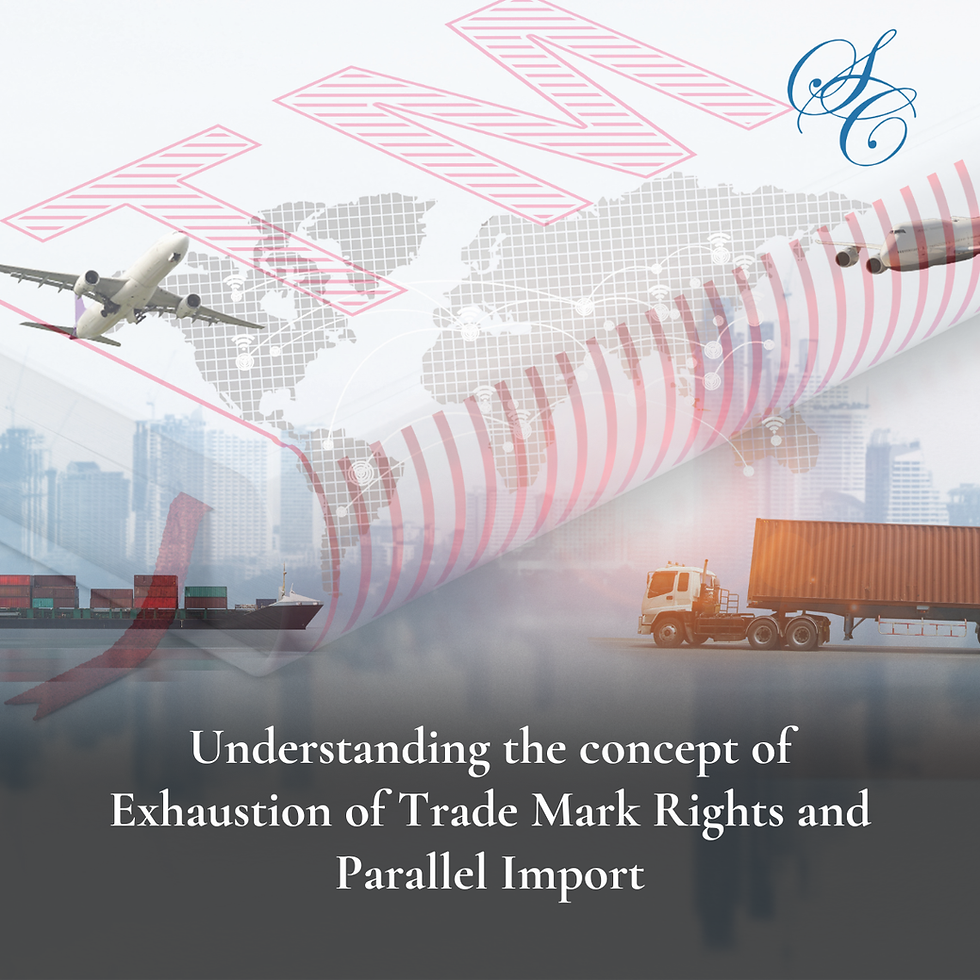The Merger Doctrine: Dispelling the most common myth about copyright
- Sarwajeet Singh
- May 26, 2015
- 3 min read
In my career as an IP professional so far, the myth that I have heard most from unwary clients is that an idea is protectable by way of copyright.
However, the truth is that an idea is never the subject of a copyright, it is the expression of the idea that is. For instance, if X has a radical idea of a board game, the idea itself cannot be protected by copyright. However, when X actually goes ahead and implements that idea by creating a board game in a tangible form, it becomes eligible for copyright protection. Similarly, the lyrics of a song are not protectable till they are still in the mind of the lyricist. The lyrics need to be jotted down to be protectable as a copyright.
It follows that there cannot be any copyright infringement of an idea. However, copyright in a particular expression of an idea bay me infringed.
The problem arises when it becomes difficult to separate the idea from the expression of that idea. In certain situations, an idea may be such that it is only possible to express it in a certain way (Idea-Expression Dichotomy). In that case, can that expression of idea be copyrighted?
A landmark case in the US answered this question way back in the year 1879, i.e. Baker v. Seldon (101 U.S. 99). Seldon sued Baker alleging copyright infringement for copying of certain ledgers that Baker proposed in his book that described a new way of book-keeping. The US Supreme Court held that the ledger forms that Seldon sought to protect could not be protected under copyright as these forms are necessary to use the book keeping system. In the context of this case, the answer to the question posed in the previous paragraph is a resounding ‘NO’.
To sum up, when an idea can be expressed in no more than one way (or in extremely limited ways), it is barred from being a subject of copyright and thus exclusivity. When the idea and expression are so bound together, in a way that there are exceptionally limited ways of expressing it, the expression of that idea becomes incapable of being copyrighted for that very reason. Simply put, since ideas cannot be copyrighted, the limited ways to express the idea cannot be copyrighted because the idea behind the work merges with its expression and copyright of an expression of an idea in such a case would tantamount to copyright of the idea itself which is not permitted by law. Whether or not the Court would apply the doctrine of merger to a certain fact scenario depends on how broad the “idea” is. The doctrine of merger also counters the free speech concerns raised in discussions on copyright. This is because expression necessary to spread ideas are not permitted to be monopolized when there are extremely limited ways of expressing it.
The doctrine of merger has been applied by Courts in India too from time to time. A landmark judgment which discusses the doctrine of merger in detail is the Scrabble Judgment delivered in the case of Mattel, Inc. & Ors. v. Mr. Jayant Agarwalla & Ors, by Justice Ravindra Bhatt of the Delhi High Court. The Plaintiffs claimed that the Defendants infringed their copyright and trademark in “SCRABBLE” when they launched an online version of their game under the mark “SCRABULOUS” and the same was even available of Facebook. Referring to previous cases, the Court squarely agreed that the doctrine of merger is particularly applicable to games because they consist of abstract rules and play ideas. The Court also dissected the various elements in the game of scrabble as copyright and Trade Mark protection was covered under various elements such as the Rules, the name “Scrabble”, the design of the game etc. The following observation of the Court is extremely pertinent in this regard:
“By way of illustration, the arrangement of colours, values on the board, the collocation of lines, value for individual alphabetical tiles, etc have no intrinsic meaning, but for the rules. If these rules- which form the only method of expressing the underlying idea are to be subject to copyright, the idea in the game would be given monopoly: a result not intended by the lawmakers, who only wanted expression of ideas to be protected. Thus, this court concludes, prima facie, that the copyright claim of the plaintiff cannot be granted.”
The doctrine of merger is a very important concept which has been recognized and applied globally. The doctrine helps in checking the over reach of copyright to ensure that things which public should have access to are not kept from the public.




Comments